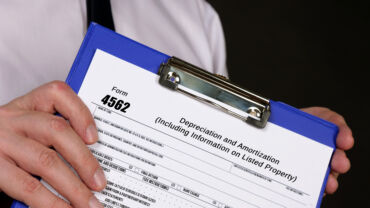- Global directory Global directory


IRS Letter Explains How One-Year Rule Affects Exclusion of Travel Reimbursements
EBIA
May 30, 2019 · 5 minute read
IRS Information Letter 2019-0003 (Dec. 21, 2018)
Available at https://www.irs.gov/pub/irs-wd/19-0003.pdf
The IRS has released an information letter explaining the statutory one-year rule that determines when a work assignment ceases to be temporary for purposes of travel deductions and the income exclusion for travel expense reimbursements. Generally, travel reimbursements are excludable if they would be deductible as ordinary and necessary business expenses under Code § 162(a). Travel expenses are deductible under that Code provision only if the taxpayer is traveling “away from home” in the pursuit of a trade or business. A taxpayer is not considered away from home, however, if the assignment exceeds one year. The information letter responds to a request for a waiver or other action allowing certain employees and contractors to treat per diem reimbursements as nontaxable travel reimbursements. The letter suggests that the reimbursements at issue were treated as taxable income because they did not meet the one-year rule.
The letter explains that a taxpayer’s tax home is generally the taxpayer’s regular or principal place of business. If an employee is assigned to a different location, and the assignment is realistically expected to last—and does last—for one year or less, the assignment is considered temporary. If the assignment is expected to last longer than a year, it is not temporary regardless of its actual length. And if the assignment is expected to be shorter, but that expectation changes, the assignment ceases to be temporary when the expectation changes. When the assignment ceases to be temporary, the new location becomes the taxpayer’s tax home, and travel expenses incurred at that location are no longer deductible. Because the one-year rule is statutory, the IRS has no authority to waive it.
EBIA Comment: The one-year rule took effect in 1993, but employees continue to be surprised and confused by it (e.g., see our Checkpoint article ). There may also be confusion as to how travel expense reimbursements can still be excludable despite most employees’ inability to claim a deduction for unreimbursed travel expenses. Employee travel expense deductions are miscellaneous itemized deductions, and the Tax Cuts and Jobs Act (TCJA) suspended miscellaneous itemized deductions for most employees for tax years after 2017 and before 2026. (The suspension does not affect Armed Forces reservists, qualified performing artists, fee-basis state or local government officials, and employees with disabilities who have impairment-related work expenses. It also has no effect on contractors, whose travel expense deductions are not considered miscellaneous itemized deductions.) But that suspension does not prevent employers from providing excludable business travel expense reimbursements (see our Checkpoint article ). Employers that do not intend to gross up taxable reimbursements should consider educating their employees about the one-year rule (and the current lack of a deduction to partially offset loss of the exclusion) at the start of any assignment that could last more than a year. For more information, see EBIA’s Fringe Benefits manual at Sections II.E (“Employee Business Expense Reimbursements”) and XXI (“Travel Expense Reimbursements”).
Contributing Editors: EBIA Staff.

The future of work is coming to Orlando this November
From AI-driven solutions to cutting-edge advancements in digital transformation, find out what’s next from Thomson Reuters at SYNERGY 2024.

Navigate the current landscape of AI
Our latest Future of Professionals Report examines how AI technology is transforming professional work, highlighting key findings and recommendations.

Build a career without boundaries
Learn more about how Thomson Reuters informs the way forward in The Power of Purpose
Related posts

When Do COVID-19-Related Extended HIPAA Special Enrollment Periods End?

ACA Preventive Health Services Mandate to Remain in Effect During Braidwood Appeal

CMS Issues Guidance on Elimination of MHPAEA Opt-Out Elections by Self-Insured Non-Federal Governmental Health Plans
More answers.

Managing supply chain issues and mitigating risk

What to know about Form 4562: Depreciation and Amortization

Understanding the Taxpayer Data Protection Act: A comprehensive overview

- Mileage Expenses / Personal Taxes / Taxes
Temporary Work Locations & Commuting Expenses Tax Deductions
by Team Falcon · Published · Updated
Table of Contents
What does the IRS consider a temporary work location and how does this impact commuting expenses write offs? Read to find out.

Many people, particularly self-employed individuals, and independent contractors take jobs that last only a short period of time. These jobs could also be called temporary work. In addition, for some of these temporary jobs, the worker is required to commute to a temporary work location. And the expenses of this work commute can add up. Therefore, many tempory workers wonder, are commuting expenses a tax write-off?
Read this article to learn how the IRS defines a temporary work location, and how to determine if your temporary work location commuting expenses are a tax write-off.
How does the IRS define a temporary work location?
The IRS defines a temporary work location as a work location expected to last for less than a year. For example, an employee’s or contractor’s commute between their home and regular work location is not a deductible business expense.
Daily round-trip commute expenses are tax-deductible, regardless of the distance, if the work location is temporary then the
Factors that Determine a Temporary Work Location
Temporary employment isn’t considered temporary for work locations if it’s expected to last longer than one year. Also, temporary employment is not considered temporary if it was initially planned to last less than a year but ended up lasting longer than a year. Therefore, in this case, the commuting expenses are not deductible. For example, an individual accepts an offer for a new full-time job but resigns within the first year of employment.
Also, a work location is not considered temporary if the employment was initially expected to last less than a year and at a later date was expected to last more than a year. Further, once it is realized that the employment will last longer than a year the work location is no longer considered temporary.
What does the IRS consider commuting expenses?
The IRS defines a commute as ‘transportation between your home and your regular place of work’. Please review this article for more detailed information on commuting expenses, How Does the IRS Define Commuting? .
What if I have more than one work location?
If the employee works between two or more work locations the commuting expenses between the two work locations are deductible. Also true for someone employed by two different employers. In the event that the commuter does not go directly from one location to the other, only the amount of the commuting expense is deduct ible.
No Ordinary Place of Work
Many workers have no ordinary place to work. Meaning, they don’t have a regular office that they go to on a daily basis, Monday through Friday. Instead, these workers are traveling around to different work locations throughout the day and throughout the week.
What commuting expenses are tax-deductible if you travel to different work locations for work? Commuting expenses aren’t deductible if the job requires you to travel to different workplaces around the city where you live. However, if the commuting requires the taxpayer to travel outside of their metropolitan area, then these commuting expenses are deductible. For information about what qualifies as “Away From Home”, review the post, IRS Business Travel Definition for “Away From Home” .
Temporary Work Location vs Travel
Transportation is a travel expense if the temporary work location is outside of the area where the taxpayer lives and it involves overnight stay. A travel expense is not a temporary work location commuting expense.
Therefore, expenses, in this case, deductible business travel expenses instead of commute expenses. For more information on business travel expenses please review the following post, What Qualifies as Tax Deductible Business Travel Expenses .
How do I track of mileage expense write offs?
- Odometer Log Enter the start and end odometer readings of your business transportation, Falcon Expenses calculates miles driven and expense reimbursement amount using the custom reimbursement rate set in the app. Check out this article for more information, Falcon Expenses Odometer Log Feature .
- Start and End Trip Addresses Enter start and end address for a tax deductible commute or transportation, Falcon Expenses calculates the number of miles driven and the expense reimbursement amount. Check out this article for more information, Falcon Expenses Addresses Feature .
- GPS Mileage Tracker Use an integrated GPS tracker to track tax deductible business transportation miles while you are driving. Falcon Expenses will calculate the deductible mileage expense amount for your when the trip is complete. Check out this article for more information, Falcon Expenses GPS Tracker .
About Falcon Expenses
Falcon Expenses is a top-rated mobile application for self-employed and small businesses to track expenses and tax deductions. Falcon customers record $6,600, on average, in annual tax deductions. Start today. The longer you wait the more tax deductions you miss out on.
Automatically track mileage expenses and expenses, keep an odometer log, receipt vault and log billable hours. Quickly organize expenses by time period, project, or client. Easily prepare reports to email to anyone in PDF or spreadsheet formats, all from your phone. Use for keeping track of tax deductions, reimbursements, taxes, record keeping, and more. Falcon Expenses is great for self-employed, freelancers, realtors, business travelers, truckers, and more.
Was this article helpful?
We are a team of writers and contributors with a passion for creating valuable content for small business owners, self-employed, entrepreneurs, and more.
Feel free to reach out to use as [email protected]
Tags: Away From Home Business Expenses Business Tax Deductions Business Transportation Expenses Contractor Expenses Freelancer Independent Contractor Self Employed Temporary Work Location
You may also like...

6 Tips for More Efficient Business Travel
by Team Falcon · Published
Top Mileage Tracker App Features for Self Employed
by Brooke Sugarman · Published

Understanding the self-employed health insurance deduction
- Pingbacks 0
Generally, the cost of a car, plus sales tax and improvements, is a capital expense. Because the benefits last longer than 1 year, you generally can’t deduct a capital expense. However, you can recover this cost through the section 179 deduction (the deduction allowed by section 179 of the Internal Revenue Code), special depreciation allowance, and depreciation deductions. Depreciation allows you to recover the cost over more than 1 year by deducting part of it each year. The section 179 deduction, special depreciation allowance, and depreciation deductions are discussed later.
Leave a Reply Cancel reply
Your email address will not be published. Required fields are marked *
Contact us:
Popular Articles What is an IRS Schedule C Form? What Does an EIN Number Look Like? Learn How to Never Lose a Receipt Again
About Falcon Expenses Falcon is a top-rated expense tracker and mileage tracker app for self-employed and small businesses. Falcon customers record over $6,600, on average, in annual tax deductions. The longer you wait to get Falcon, the more tax deductions you miss. Learn more: Falcon Feature Guides Download, Free

Falcon Expenses Mobile App

Download Falcon Expenses on the App Store
MileIQ Inc.
GET — On the App Store

What Does The IRS Consider A Temporary Work Location?

Download MileIQ to start tracking your drives
Automatic, accurate mileage reports.
In this week's Ask the Tax Expert, a reader asks about the IRS definition of a "temporary work location." This can be important to know if you plan to take a mileage deduction and drive from your home to a temporary work location.
IRS Temporary Work Location Definition
Q. I'm a W-2 employee for an agency that contracts me out on assignments. My agency is in New Jersey and I live in Massachusetts. My current assignment is scheduled to last only two years. It's also about 15 miles from my home. Can I claim a deduction for my travel to and from this temporary office?
- Michael, Springfield, Mass.
A. No, you can't. Travel from home to a regular work location is ordinarily not deductible. The IRS considers this to be commuting. Commuting is a personal expense and is never deductible.
The exception to the IRS commuting rule is when you travel from home to a temporary work location. Yet, the IRS defines a temporary work location as a place where you realistically expect to work less than one year. Your situation is not a temporary work location because your assignment is expected to last two years.
Your situation probably still wouldn't qualify for a temporary work location even if your assignment was expected to last less than one year. This is because a temporary work location can be inside or outside of the metropolitan area where you live. But, if the location is inside your metropolitan area, you must have an outside office or other regular work location away from your home. With no outside office, you could only deduct your mileage when you travel from home to work assignments outside your metropolitan area.
Your metropolitan area is defined to be a region including a city and the densely populated surrounding areas that are socially and economically integrated with it. As a rule, your metropolitan area extends no more than 35 to 40 miles from your home. Since you're only traveling 15 miles from home, you likely within your metropolitan area.
Still tracking miles by hand?
Get Started
Related Blog Posts

How to set up IRS payment plan if you can't pay your taxes
What do you do if you owe the IRS taxes but don’t have the money to pay? We explain how to setup a payment plan and the options open to you.

How to File a Tax Extension with the IRS
If you are unable to file on time, you can apply for a tax extension with the IRS and delay your filing due date for a time - but it's not without a cost.

Form I-9 Requirements for Small Businesses
Per federal law, employers must verify the identity and employment authorization of all employees hired, recruited or referred for a fee using Form I-9.

How do I become an enrolled agent?
Enrolled agents are federally licensed tax professionals who specialize in taxation and are authorized to represent taxpayers before the IRS at all levels.

How much do you have to make to file a tax return?
If you're self-employed, you must file a tax return if earnings are $400 or more. If not self-employed, then it depends on filing status and gross income.

What Are the Odds The IRS Will Audit You?
The IRS audit odds increase if you work for yourself and file a Schedule C. Learn about the chances and how to be prepared if that dreadful day comes.

- Sign Up Log In
- News & Insights
- Find an Accountant
- Meet TaxBuzz Ai
Need help selecting a firm?
Tell us about your project and get introduced to the best accounting and tax firm for your needs.
Guidelines for Definite, Temporary Assignment
Tcja caution.
For 2018 through 2025, employees are not able to deduct their job-related travel expenses because the TCJA of 2017 suspended the Schedule A miscellaneous deductions that are subject to the 2% of AGI reduction, including employee business expenses. Employees should consider negotiating with their employers to be covered by an accountable plan that would provide tax-free reimbursement to them for their employee business expenses.
Find details about IRS guidelines for definite and temporary work assignments away from a taxpayer's regular business location.
During employment of short and fixed duration away from a taxpayer’s regular business location, tax home does not change. The advantage of this is that a taxpayer on a temporary assignment may deduct the necessary travel expenses in first getting to the temporary place of work and in returning to the tax home after the assignment is completed. Reasonable expenses for meals, lodging, and other ordinary and necessary business expenses are deductible while at the temporary location (even for days off).
A taxpayer is deemed not on a temporary assignment if the stay away from home exceeds one year. This means that for stays away from home of over one year, no travel or living cost deductions at the assignment location are allowed, even though the taxpayer’s family remains at the old job location.
Local Transportation Within Tax Home
Transportation between a taxpayer’s home and a temporary work location in the same trade or business WITHIN the metropolitan area where the taxpayer lives and normally works is deductible business transportation only if one of the following two conditions is met:
Multiple locations : The taxpayer has one or more regular work locations away from his/her home; or
Home office : The taxpayer’s home is his/her principal place of business (as defined under the home office rules).
Lodging Per Diem
Although per diem rates may be used to substantiate deductions for lodging, meals, and incidental expenses, or for meal expenses and/or incidental expenses only, they may not be used to substantiate deductions for lodging expenses only. Self-employed individuals are not entitled to use the federal per diem rates to substantiate lodging expenses under any circumstances (Starr v. Commissioner, TC Memo. 2000-305) . From 2021 Pub 463 , page 6: “There is no optional standard lodging amount similar to the standard meal allowance. Your allowable lodging expense deduction is your actual cost.”
Local (Within Tax Home) Lodging
IRS has issued final regulations permitting certain non-away-from-home lodging expenses to be treated as deductible business expenses by the employer and tax-free working condition fringe benefits or accountable-plan reimbursements to the employee. The regulations provide a safe harbor; local lodging expenses are treated as ordinary and necessary business expenses if all these conditions are met (Reg § 1.162-32(b)) :
- The lodging is necessary for the individual to participate fully in or be available for a bona fide business meeting, conference, training activity, or other business function.
- The lodging is for a period that does not exceed five calendar days and does not recur more frequently than once per calendar quarter.
- If the individual is an employee, his employer requires him to remain at the activity or function overnight.
- The lodging is not lavish or extravagant under the circumstances and does not provide any significant element of personal pleasure, recreation, or benefit.
The final regulations added a provision that, even if the safe harbor conditions aren’t met, “facts and circumstances” may still allow favorable treatment of the expenses. According to Reg § 1.162-32(a), “whether local lodging expenses are paid or incurred in carrying on a taxpayer's trade or business is determined under all the facts and circumstances . One factor is whether the taxpayer incurs an expense because of a bona fide condition or requirement of employment imposed by the taxpayer's employer. Expenses paid or incurred for local lodging that is lavish or extravagant under the circumstances or that primarily provides an individual with a social or personal benefit are not incurred in carrying on a taxpayer's trade or business.”
Example – Safe Harbor: A business conducts a 2-day business-related sales training program at a hotel and conference centre near its main office. The employer requires both its field and in-house sales force to attend the training and stay at the hotel overnight between Day 1 and Day 2 for the bona fide purpose of facilitating the training. If the company pays the lodging costs directly to the hotel, the stay is a working condition fringe benefit to all attendees (even to employees who live in the area who are not on travel status), and the company may deduct the cost as an ordinary and necessary business expense. If the employees pay for the lodging costs and are reimbursed by the company, the reimbursement is of the accountable plan variety and is tax-free to the employees and deductible by the company as an ordinary and necessary business expense. Example – Self-Employed: Continuing the example above. . .If a locally based self-employed consultant who does business with the company was required by the company to attend the sessions and to stay at the hotel, he could deduct the lodging expense if he paid for it himself or exclude the expense if he were reimbursed by the company after accounting to it in full for his costs. Example – Facts and Circumstances : Able Company conducts a seven-day training session for its employees at a hotel near the company’s main office. The training is directly connected with Able's trade or business. Some employees attending the training are traveling away from home and some employees are from the local area. Able requires all employees attending the training to remain at the hotel overnight for the bona fide purpose of facilitating the training. The company pays the costs of the lodging at the hotel directly to the hotel and does not treat the value as compensation to the employees. Because the training is longer than five calendar days, the safe harbor does not apply. However, the value of the lodging is excluded from income since the facts and circumstances test is satisfied: The training is a bona fide condition or requirement of employment and Able has a non compensatory business purpose for paying the lodging expenses and is not paying the expenses primarily to provide a social or personal benefit to the employees. The lodging Able provides is not lavish or extravagant. If the employees who are not traveling away from home had paid for their own lodging, the employee could have deducted the expenses under section 162(a) as ordinary and necessary business expenses except for 2018 through 2025 when employee business expenses are not deductible. Therefore, the value of the lodging is excluded from the employees' income as a working condition fringe under section 132(a) and (d), and the company may deduct the lodging expenses of all the employees as ordinary and necessary business expenses under section 162(a). (Based on example 1 from final regs) - Safe Harbor Example
Effect on Sole Proprietors
Part of paragraph (a) of the final regulations says, “Under certain circumstances, however, local lodging expenses may be deductible under section 162(a) as ordinary and necessary expenses paid or incurred in connection with carrying on a taxpayer's trade or business, including a trade or business as an employee.” Therefore, deducting local lodging could apply to a sole proprietor. However, the self-employed individual would still have to meet the "no personal benefit" and "bona fide activity" tests. For example, if a self-employed tax return preparer attends a two-day tax update seminar in the same city where his office is located, it would be hard to qualify to deduct overnight hotel costs at the meeting location unless there was an evening session, too.
TaxBuzz Guides

Tax Benefits for Temporary Living Expenses on Work Assignments
Explore how to maximize tax benefits for temporary living expenses during work assignments with insights on IRS guidelines and recent tax law changes.

For professionals frequently on the move due to work assignments, understanding tax benefits related to temporary living expenses can be crucial. These benefits not only help in reducing taxable income but also provide financial relief during extended stays away from home.
Temporary living expenses encompass a range of costs incurred while working at a location other than one’s primary residence. Recognizing which expenses qualify and how they can be deducted is essential for maximizing these benefits.
IRS Guidelines
The Internal Revenue Service (IRS) provides specific guidelines to help taxpayers determine which temporary living expenses can be deducted. These guidelines are designed to ensure that only legitimate expenses incurred due to work assignments away from home are considered. The IRS defines a temporary work assignment as one that lasts for one year or less. If the assignment extends beyond this period, the location is no longer considered temporary, and the associated living expenses may not be deductible.
To qualify for deductions, the taxpayer must maintain a tax home, which is generally the location of their regular place of business or post of duty, regardless of where the family home is located. This distinction is crucial because it establishes the baseline from which temporary assignments are measured. The IRS emphasizes that the taxpayer must be traveling away from this tax home for the expenses to be considered deductible.
The IRS also stipulates that the expenses must be ordinary and necessary. Ordinary expenses are those that are common and accepted in the taxpayer’s field of business, while necessary expenses are those that are helpful and appropriate for the work. This means that extravagant or lavish expenses are unlikely to qualify. For instance, while a modest hotel room may be deductible, a luxury suite would not meet the IRS’s criteria.
Deductibility Criteria
Understanding the deductibility criteria for temporary living expenses is fundamental for professionals seeking to optimize their tax benefits. The IRS has established clear parameters to determine which expenses qualify, ensuring that only those directly related to work assignments are considered. One of the primary criteria is the nature of the work assignment itself. The assignment must be temporary, defined as lasting for one year or less. This distinction is crucial because it sets the framework for what constitutes a temporary living expense.
Another important factor is the concept of a tax home. A taxpayer’s tax home is generally their regular place of business or employment, regardless of where their family resides. This means that to qualify for deductions, the taxpayer must be traveling away from this tax home. The expenses incurred must be directly related to the work assignment and not personal in nature. For example, if a professional is sent to a different city for a six-month project, the costs of lodging, meals, and transportation related to this assignment can be considered deductible.
The IRS also requires that the expenses be both ordinary and necessary. Ordinary expenses are those that are common and accepted in the taxpayer’s line of work, while necessary expenses are those that are appropriate and helpful for the business. This means that while a standard hotel room and meals at reasonable restaurants may qualify, more extravagant expenditures, such as luxury accommodations or gourmet dining, would not meet the criteria. The focus is on ensuring that the expenses are reasonable and directly related to the work assignment.
Calculating Expenses
Accurately calculating temporary living expenses is a nuanced process that requires attention to detail and a thorough understanding of IRS guidelines. The first step involves identifying all potential deductible expenses. These typically include lodging, meals, and incidental costs such as laundry and dry cleaning. It’s important to note that while meals are deductible, they are subject to a 50% limitation, meaning only half of the meal expenses can be claimed. This limitation underscores the need for meticulous record-keeping to ensure that only the allowable portion is deducted.
Transportation costs are another significant component of temporary living expenses. These can include airfare, car rentals, and mileage if driving a personal vehicle. The IRS provides standard mileage rates that can be used to calculate the deductible amount for business travel. Additionally, parking fees and tolls incurred during the work assignment are also deductible. It’s essential to differentiate between commuting expenses, which are not deductible, and travel expenses directly related to the temporary assignment.
Another aspect to consider is the duration and nature of the expenses. For instance, if a taxpayer rents an apartment for the duration of the assignment, the rent, utilities, and even renter’s insurance can be included in the calculation. However, it’s crucial to prorate these expenses if the taxpayer shares the apartment with someone else or uses it for personal purposes. This ensures that only the portion of the expenses directly related to the work assignment is deducted.
Documentation Requirements
Maintaining thorough documentation is paramount when claiming deductions for temporary living expenses. The IRS mandates that taxpayers keep detailed records to substantiate their claims, ensuring that each expense is both legitimate and directly related to the work assignment. This begins with retaining receipts for all expenditures, including lodging, meals, transportation, and incidental costs. These receipts should clearly indicate the date, amount, and nature of the expense, providing a transparent trail that can be easily verified.
In addition to receipts, maintaining a travel log can be invaluable. This log should document the dates of travel, locations visited, and the purpose of each trip. By keeping a detailed account of the work assignment, taxpayers can demonstrate that the expenses were incurred while away from their tax home and directly related to their professional duties. This level of detail not only aids in the accurate calculation of deductions but also serves as a robust defense in the event of an IRS audit.
Credit card statements can also play a crucial role in substantiating expenses. While they should not replace receipts, they can provide an additional layer of verification, especially for larger expenditures. It’s advisable to highlight relevant transactions and annotate them with notes that explain their connection to the work assignment. This practice can simplify the process of organizing and presenting documentation when filing taxes.
Recent Tax Law Changes
Recent tax law changes have introduced new considerations for those claiming deductions for temporary living expenses. The Tax Cuts and Jobs Act (TCJA) of 2017 brought significant modifications to various tax provisions, impacting how certain deductions are handled. One notable change is the suspension of the deduction for unreimbursed employee expenses, which includes temporary living expenses for employees. This suspension, effective from 2018 through 2025, means that employees can no longer deduct these expenses unless they are reimbursed by their employer under an accountable plan.
For self-employed individuals and independent contractors, the landscape remains more favorable. They can still claim deductions for temporary living expenses, provided they meet the IRS criteria. This distinction underscores the importance of understanding one’s employment status and how it affects eligibility for deductions. Self-employed individuals must ensure that their expenses are ordinary, necessary, and directly related to their business activities to qualify for deductions.
The TCJA also introduced changes to the standard deduction, which nearly doubled for all filing statuses. This increase means that fewer taxpayers itemize their deductions, opting instead for the standard deduction. For those who do itemize, it’s crucial to meticulously document and calculate temporary living expenses to ensure they exceed the standard deduction threshold. This shift highlights the need for strategic tax planning and a thorough understanding of current tax laws to maximize potential benefits.
Examples of Qualifying Expenses
To provide a clearer picture, let’s explore some examples of qualifying temporary living expenses. Lodging is one of the most common expenses, encompassing hotel stays, short-term rentals, and even extended-stay accommodations. For instance, if a consultant is assigned to a project in another city for six months, the cost of renting an apartment, along with utilities and renter’s insurance, can be deducted. It’s important to ensure that these expenses are reasonable and directly related to the work assignment.
Meals are another significant category, though they come with specific limitations. Only 50% of meal expenses can be deducted, and they must be directly related to the work assignment. For example, if a marketing executive travels to a different state for a conference, the cost of meals during the trip can be partially deducted. However, extravagant dining experiences would not qualify, as the IRS emphasizes the need for expenses to be ordinary and necessary.
Transportation costs also play a crucial role in temporary living expenses. This includes airfare, car rentals, and mileage for personal vehicles used for business travel. For example, a software developer traveling to a client site can deduct the cost of flights, rental cars, and even parking fees. It’s essential to keep detailed records of these expenses, including receipts and mileage logs, to ensure they meet IRS requirements.
Minimum Wage Changes in Chicago: Economic and Social Impacts
Maximizing start-up cost deductions: a guide for entrepreneurs, you may also be interested in..., strategic use of tax carryback and carryforward for businesses, arizona's minimum wage: trends, impacts, and public opinion, why your tax refund disappeared and how to handle it, gdpr compliance in payroll management.

IMAGES
VIDEO
COMMENTS
You can deduct travel expenses paid or incurred in connection with a temporary work assignment away from home. However, you can't deduct travel expenses paid in connection with an indefinite work assignment. Any work assignment in excess of one …
Yet, the IRS defines a temporary work location as a place where you realistically expect to work less than one year. Your situation is not a temporary work location because your assignment is expected to last two years.
The IRS “temporary work assignment” definition for construction is 12 months and the construction industry commonly requires its employees to travel to out of town job sites. In …
Find details about IRS guidelines for definite and temporary work assignments away from a taxpayer's regular business location. Learn more in this guide.
The IRS defines a temporary work assignment as one that lasts for one year or less. If the assignment extends beyond this period, the location is no longer considered …